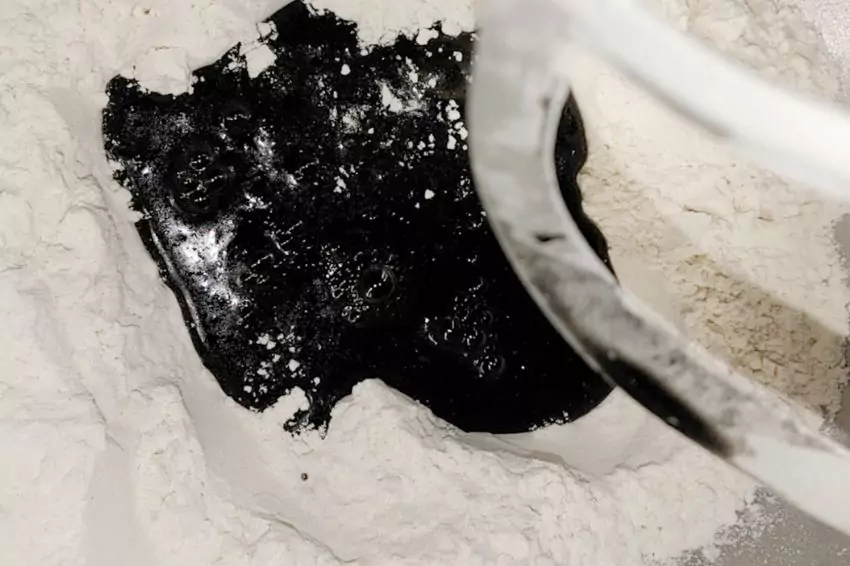I’ve always been fascinated by the unique ink that octopuses and squids produce. But can you eat octopus ink?
Octopus ink is a dark, viscous substance the animal secures as a defense mechanism. Octopuses use it to confuse predators and make a quick escape.
Gist of the Text
- Octopus ink is primarily used in cooking in Japan and the Mediterranean.
- While it’s not poisonous, eating food made with octopus ink may carry some risks.
- If you have an allergy to squid or shellfish, it’s best to avoid eating octopus ink.
Can You Eat Octopus Ink?
Octopus ink is edible and often used in cooking, particularly Japanese and Mediterranean cuisine. Octopus ink is a food coloring ingredient for flavorings such as pasta and sauces.
However, it is essential to note that ink from some species of octopus can be toxic, so it is best to consume ink from edible species.
As a curious food lover, I have always wondered if octopus ink is safe to eat. After researching and consulting with experts, I gathered vital information I would like to share.
- Octopus ink is edible and safe to consume. It is a popular ingredient in Mediterranean and Japanese cuisine, which adds flavor and color to dishes.
- Octopus ink tastes bitter and salty, so it is used sparingly in recipes. It is often used as a natural food coloring and thickener.
- Octopus ink is high in antioxidants and has anti-inflammatory properties. It is also rich in vitamins and minerals, such as iron, calcium, and magnesium.
- Octopus ink is not harmful to humans but can cause nausea if consumed in large quantities. It is best to use it in moderation and combination with other ingredients.
- If you are allergic to seafood or have a shellfish allergy, you should avoid consuming octopus ink. It is also not recommended for pregnant women or people with kidney problems.
What Does Octopus Ink Taste Like

Octopus ink has a unique taste that is hard to describe. It has a strong, salty, and briny flavor similar to the sea’s taste.
The saltiness is balanced by an earthy undertone, giving it depth and complexity.
Octopus ink has a bold flavor, yet it has a certain subtlety that leaves you wanting more.
Some people compare its taste to squid or cuttlefish ink, but octopus ink has its distinct flavor profile.
When used in pasta, the ink doesn’t change the taste, but it provides a rich and beautiful color. It is not used for its subtle flavor but for the appearance it gives to the word.
Octopus ink pairs well with various seafood dishes. Use it as a marinade or glaze for grilled fish or shellfish to add a touch of umami flavor and a visually striking appearance. The ink can also make seafood stews or soups for a hearty and flavorful meal.
Is Octopus Ink Poisonous?
We researched whether octopus ink is safe to eat and found that it is not poisonous to humans. Octopus ink is a natural substance the octopus produces as a defense mechanism. It is rich in flavor and often used in various culinary dishes.
Octopus ink is not toxic, but it is important to note that consuming large amounts may cause digestive discomfort.
The ink contains melanin, which gives it its dark color. However, it is not connected to the venom glands of the octopus, which are separate.
Is it Safe to Eat Octopus Ink?
Yes, octopus ink is safe to eat. It is consumed in many cuisines worldwide, including Mediterranean and Japanese cuisine. It is often used to add flavor and color to pasta, risotto, and sauces.
Octopus ink has been a subject of curiosity concerning octopus consumption and its truth. It is generally safe to eat as long as it comes from a reputable source.
However, it is worth noting that consuming excessive amounts can have adverse effects due to the presence of high levels of heavy metals like copper.
What Happens If You Eat Octopus Ink
If you have an allergy to squid or shellfish, it’s best to avoid eating octopus ink.
In some cases, eating food made with squid ink can cause an allergic reaction similar to a seafood allergy. Symptoms may include hives, itching, swelling, and difficulty breathing.
If you experience these symptoms after consuming octopus ink, seek medical attention immediately.
It’s also worth noting that octopus ink can stain your teeth and clothing. If you decide to eat octopus ink, be prepared for some black stains.
Side Effects of Octopus Ink
Although octopus ink is generally safe to eat, it is not suitable for everyone. Here are some potential risks and side effects of consuming octopus ink:
- Allergic Reactions: People allergic to seafood or shellfish should avoid consuming octopus ink. It can cause an allergic reaction similar to a seafood allergy.
- Stomach Upset: In some cases, consuming octopus ink can cause stomach upset, including nausea, vomiting, and diarrhea.
- Staining: Octopus ink can stain your clothes, teeth, and tongue. It is advisable to avoid wearing light-colored clothes while eating dishes that contain octopus ink.
- Ink Quality: The quality of octopus ink can vary depending on the species of octopus, the time of year, and the location where it was harvested. Ensuring that the octopus ink you consume is fresh and of high quality is essential.
FAQ
As I researched eating octopus ink, I came across some common questions that people have. Here are some of the most frequently asked questions:
Octopus ink can be found at specialty food stores and online retailers. Some supermarkets may also carry it in the international foods section. When purchasing octopus ink, be sure to choose a reputable brand and check the expiration date.
Octopus ink is generally safe to eat, but it may cause some people to experience an allergic reaction. If you are allergic to shellfish or squid, you may also be allergic to octopus ink. Additionally, ink from some species of octopus can be toxic, so it is important to only consume ink from edible species.
Octopus ink can be used to flavor pasta dishes, sauces, and soups. It is also often used to color rice and other dishes. To use octopus ink, simply add it to your recipe as directed. It is important to note that ink can stain clothing and surfaces, so it is best to use caution when handling it.
Octopus ink has a slightly bitter and briny taste. It is not typically consumed on its own but is used to flavor dishes and provide a black color. Squid ink has a similar taste and is often used as a substitute for octopus ink in recipes.





Leave a Reply
You must be logged in to post a comment.